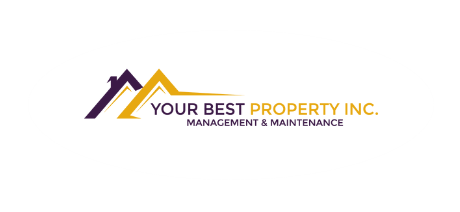Your Trusted Partner in Real Estate. Contact me at 416.830.4133 for all your property needs.
Landlord
Resources
Tenant Screening:
This maybe the most challenging aspect of leasing up a property. You have a short window of opportunity to do your due diligence and select a good tenant. From the initial contact, ask open ended questions and see how they respond. If they provide comprehensive answers and offer verifiable information, you’re off to a good start.
- Background Checks: Conduct comprehensive background checks, including credit history, criminal records, and rental history. There are online services that can help you do this. Please ensure you have a complete application and the prospectives tenants permission.
- Reference Verification: Contact previous landlords and personal references to assess a tenant's reliability and character. Consider who is providing the reference and whether they may have a relationship of motive to provide a good reference. Try to find a neutral party.
- Income Verification: Ensure tenants have a stable income source to afford rent and a track record of payment verification.
Property Maintenance:
Consider keeping a small inventory of parts and tools with you when you do inspections. Even a screw driver or set of pliers maybe helpful in a pinch. If there’s a small maintenance item that you can complete on the spot at the request of a tenant, it will save you time and they tenant will appreciate your prompt attention to their request.
- Regular Inspections: Perform routine property inspections to identify maintenance needs and address them promptly. Consider documenting the condition and maintenance completed. You may want to schedule certain activities so that there is no oversight and tenants know what to expect.
- Repair Coordination: Arrange and oversee repairs, whether routine maintenance or unexpected issues. When possible try to use the same set of trades. They will become familiar with the property and maybe able to point or opportunities for improvement.
- Preventative Maintenance: Implement a preventative maintenance schedule to prolong the life of property components. Completing preventative maintenance, should help mitigate emergencies and save you time, money and headaches.
Legal Compliance:
In Ontario, you’ll need to be familiar with the Residential Tenancy Act and municipal property standards.
- Lease Agreement Compliance: In Ontario, we have the Residential Tenancy Agreement (Standard Form of Lease). You can make amendments to this, however they cannot contradict the RTA otherwise they may not be enforceable.
- Tenant Rights: Stay informed about tenant rights and Human Rights, these will impact your responsibilities as a landlord.
- Deposit Handling: In Ontario, landlord’s typically accept First and Last months rent when signing a lease. The only deposit that a landlord can hold is typically Last Months Rent. This deposit will be applied once the tenant give’s notice to vacate the unit. The Last Months Rent, will cover the rent for this final month. It is not applicable to the 12th month of a 1 year term if the tenant is continuing the lease agreement on a month to month basis. Please note, that Last Months Rent earns interest at the rate of the residential rent increase guideline. This interest can be paid back to the tenant after the 12 month term or applied to the Last Month Rent, to top-up their Last Month Rent so there is no deficiency, but Tenants must be given the option to either accept the interest and top-up, or credit the interest towards the Last Months Rent to top it up.
Evictions:
Can you evict, how do you evict, what are your options? You should become familiar with the RTA and understand what are valid reasons for eviction.
- Proper Notice: Issue eviction notices correctly, double check spelling and ensure you have all the necessary information on all notices.
- Legal Procedures: Understand the N forms, Application forms, and the process. Often, there will be opportunities to reach and agreement without the need for a decision from an adjudicator. Consider payment plans or negotiated agreements.
- Tenant Rights: Be aware of tenant rights during the eviction process. Your responsibility as a landlord doesn’t end because you have given notice.
Financial Management:
All landlords should have understand their budgeting, rent collection, taxes and financial statements. Additionally, if you’re non-resident you should look into any non-resident tax implications.
- Rent Collection: Ensure timely rent collection, noting that you can receive rent by cash, cheque, e-transfer or direct deposit. This all depends on how your tenant prefers to pay rent and what you have set up to accept rent. Note landlords cannot ask for post-dated cheques, but they can be accepted it a tenant offers.
- Budgeting: Regardless of the size of the property its prudent to develop and manage a budget for property-related expenses, including taxes, insurance, and maintenance. This helps with forecasting expenses so there are no surprises.
- Financial Reporting: This is most important at the year. Maintaining accurate financial records will help you during tax season when filing income tax.
Tenant Relations:
Fostering positive and professional relationships with your tenants is of utmost importance. Since your tenants reside in your property, maintaining strong rapport with them not only ensures their well-being but also motivates them to conscientiously preserve and safeguard your valuable asset.
- Effective Communication: Establish open and clear channels of communication with tenants to address concerns and issues.
- Maintenance Requests: Promptly respond to maintenance requests and ensure tenants' comfort. You may develop a system, by email, form, or an online portal for which you expect the tenant to complete these requests. Understanding your requirements as a landlord is also important as there are some items that the tenant should be taking care of. For example, changing light bulbs or unclogging a toilet with a plunger are typically the responsibility of a tenant. If the toilet was clogged due to neglect and a plumber is required, this is typically charged back to the tenant.
- Conflict Resolution: Resolve conflicts and disputes with tenants professionally and amicably.
Marketing and Vacancies:
Attracting the best tenants and setting your rental up for success all starts with the advertising. Understanding the different listing services, online marketplaces or classifieds is essential to success.
- Property Promotion: Each unit is unique, based on the location, layout and features, you may want to stage, or virtually stage the unit. This may also influence your decision on where you list the unit. Some areas or tenant demographics may prefer a particular type of advertisement.
N Form Summary
Please note that this summary is just a reference guide. We recommend you consult with your lawyer or paralegal prior to issuing most notices.
N Forms | Description |
N1 | Notice of rent increase
|
N2 | Notice of rent increase partially exempt
|
N4 | Notice to terminate tenancy due to arrears
|
N5 | Notice to end tenancy for interfering, overcrowding, or damage
|
N6 | Notice to end tenancy for illegal acts or for misrepresenting rent-geared to income
|
N7 | Notice to end tenancy for causing serious problems in the rental unit or residential complex
|
N8 | Notice to end your tenancy at the end of term
|
N10 | Agreement to increase rent above the guideline
|
N11 | Agreement to end tenancy
|
N12 | Notice to end tenancy because the landlord, purchaser, or a family member requires the rental unit
|
N13 | Notice to end tenancy because the landlord wants to demolish, repair or convert the unit
|

